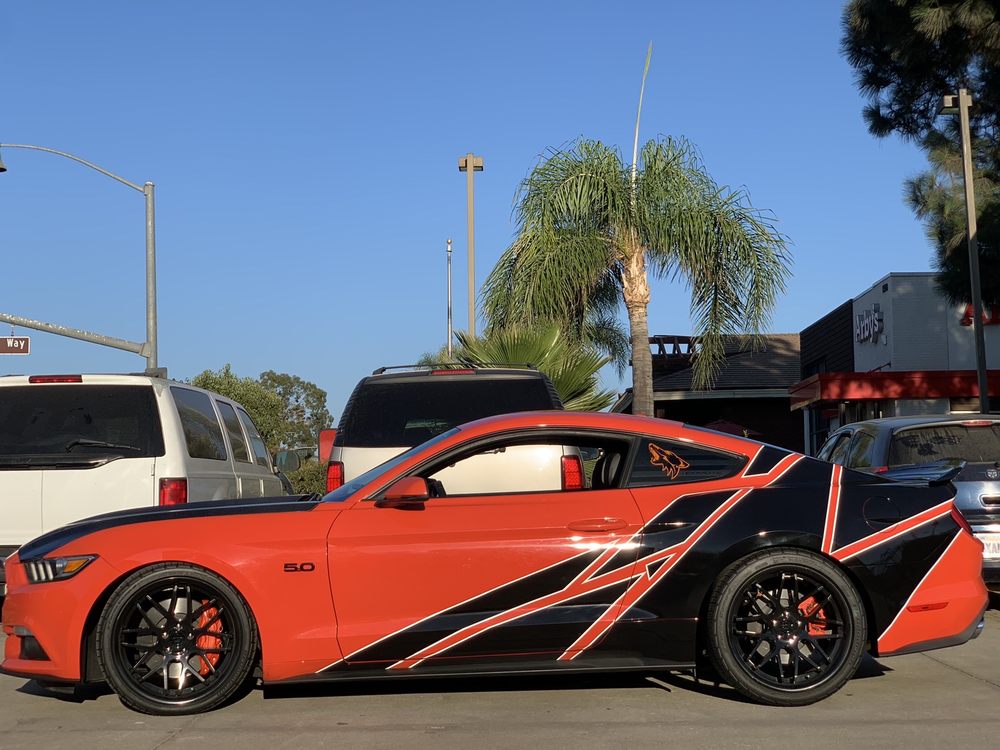
Auto wraps have emerged as a sophisticated solution for vehicle customization, offering a multitude of options tailored to both aesthetic desires and protective needs. The industry distinguishes between vinyl wraps, which come in cast or calendered varieties, each with distinct durability and application properties. Chrome wraps offer an unparalleled reflective finish, capturing attention with their mirror-like sheen. Meanwhile, paint protection films (PPF) serve as a defensive layer against environmental damage. Understanding the nuances of these materials involves an exploration into their composition, application techniques, and the long-term implications for vehicle maintenance, raising questions about the ideal choice for your car.
Types of Auto Wraps
When considering the variety of auto wraps available in the market, it is essential to understand the distinct types and their specific applications, as this knowledge can significantly impact the customization process of your vehicle. Vinyl wraps, the most prevalent choice, offer unparalleled versatility in terms of colors, finishes, and textures, allowing for a wide spectrum of aesthetic transformations. Cast vinyl, particularly, is renowned for its durability and conformability, making it ideal for complex surfaces such as vehicle contours and curves.
Alternatively, calendered vinyl is a cost-effective option, best suited for flat or gently curved surfaces, albeit with a shorter lifespan due to its thicker, less flexible nature.
Chrome wraps, another popular variant, provide a reflective and high-gloss finish, often used to achieve a standout, luxurious appearance.
For those seeking protection alongside customization, paint protection films (PPF) are an optimal choice. These clear films primarily protect the vehicle’s paint from scratches and environmental damage while maintaining its original color.
Incorporating these insights into your decision-making process not only enhances the vehicle’s visual appeal but also aligns with the industry standards, ensuring a sense of belonging within the automotive community.
Benefits of Car Wraps
Car wraps offer an array of advantages that extend beyond mere aesthetic enhancements, providing both practical and financial benefits for vehicle owners. Technically, a car wrap serves as a protective layer, safeguarding the original paintwork from environmental hazards such as UV rays, road debris, and minor abrasions. This is particularly crucial for maintaining the vehicle’s resale value, as a well-preserved exterior often correlates with higher market prices.
Additionally, car wraps can be removed without causing damage, offering the flexibility to revert to the original paint or apply a new design.
From a financial perspective, car wraps are cost-effective compared to a full repaint, which can be considerably more expensive and time-consuming. The variety of finishes and designs available in wraps, such as matte, gloss, or textured films, allows for personalization that aligns with individual or brand identity without the permanence of paint.
Moreover, businesses can leverage car wraps as mobile advertisements, transforming vehicles into moving billboards. This strategic marketing tool ensures high visibility and broad reach, fostering community engagement and brand recognition. Thus, car wraps transcend simple decoration, integrating functional value with visual appeal for a diverse audience.
In an era where individuality is prized, it is ironic that vehicles are often indistinguishable from one another. Auto wraps, with their myriad options—be it vinyl, chrome, or paint protection films—offer a solution that ironically emphasizes personal style through mass-produced materials. Despite the irony of using synthetic wraps to express uniqueness, the technical benefits, such as enhanced durability and aesthetic versatility, underscore their value in the automotive industry. Thus, customization through auto wraps paradoxically unifies individuality with conformity.